Daley Downing's Blog, page 40
July 1, 2017
How To Get Through Life Like A Cat
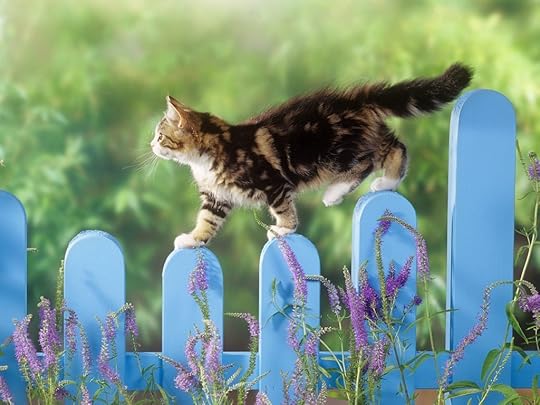
Take the road less traveled. Sure, it’s tempting to go down the path others have already been on for ages; the pawsteps before you are clear and easy to follow, and most of the dangers that may come, you’ve been warned about. But nothing will make up for what you’re supposed to do in your own life, for jumping onto the path destiny has set for you and you alone, regardless of whether it’s planned or prepared or expected or not. Don’t worry too much about what others think you should or shouldn’t do. Find your own road, and proudly put your pawsteps on it.
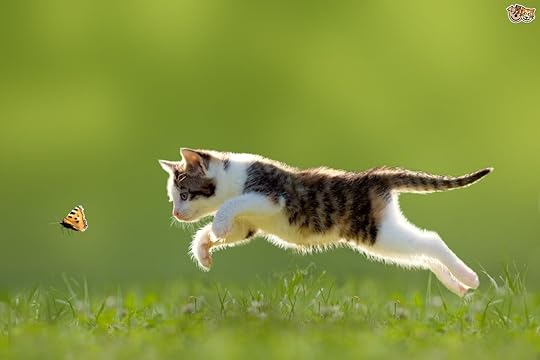
Remember to play. Chasing that butterfly or leaf is valuable. It reminds you to let go of worry and fear; you can’t control the world, you can only control how you react to it. The sun may not always shine, the butterflies may not always be in the mood; but keep memories of those times in your heart, and bring them to your mind when the wind is cold and the dark is frightening. The playful moments will come back.

Sometimes we all just need to sit in the grass. When it’s a warm, lazy summer afternoon, and the desire to lie in the grass and roll on your back and splay your claws outweighs the obligation to change the litter box or fill the food dish, you have reached pure serenity. Take advantage of it. Revel in it. The duties will still be there later; and guess what, maybe they can wait.

Stop and breathe. Don’t think so much about that impending rainstorm or whether your humans will remember to take you to the vet for those shots, that you forget to appreciate that comfy couch or the fact your fellow cat let you have his treat the other night. Life is not always a bowl of shrimp; so we need to decide to live calmly, with dignity and confidence. Keeping your head is only for the better.
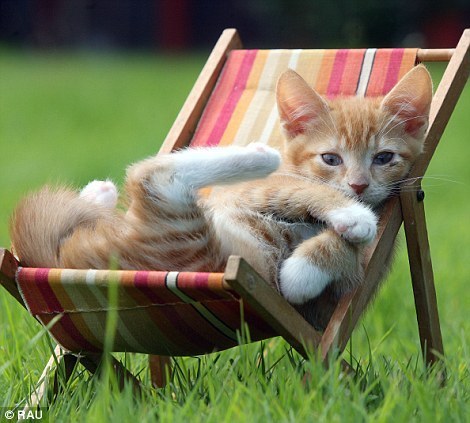
Get yourself a chair that fits. Don’t automatically try to squeeze yourself into the worn out lawn chair they’re throwing out next week, because it seems the couch and the beds are always taken up by human kittens or a laundry basket (that sleeping in means getting yelled at). Don’t think you have to settle for less than the best just because it seems to be the only option. Dig a little and discover an unused corner of a closet where you can knead an old afghan into the right position, or the top of that shelving in the basement where they store the camping supplies. Find what works to give you a little bit of heaven.

Naps are important. We keep telling our humans how much they need their sleep — and how much we need ours, and somehow they don’t quite get it. Sleep brings rest to muscles weary from climbing trees, soothes frayed fur, and rejuvenates our ears and tails, so we can maintain that amazing balance and awareness of our surroundings. We imagine it provides similar benefits for humans. So, everyone, nap.
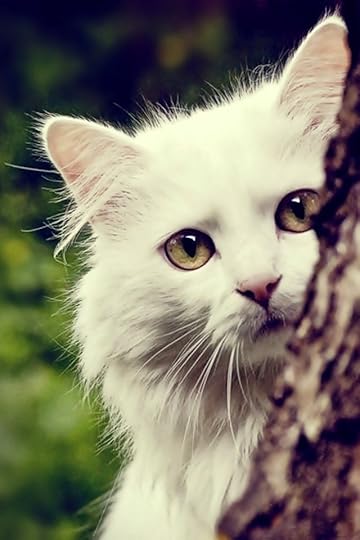
Whatever you’re facing, you can do it. You are stronger than you think. Don’t just hide behind the garage or in the bushes and wait for another cat or a human to come chase away that neighbor dog or the nasty crow trespassing on your turf. Bristle up that fur and raise your voice in your most intimidating yowl. You have it in you; the blood of lions and tigers runs in your veins. Don’t forget it.
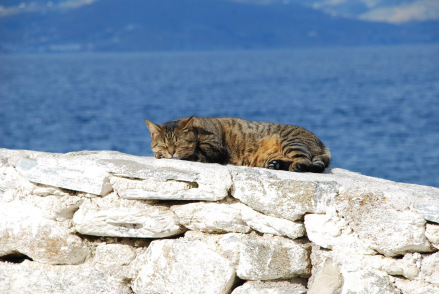


June 29, 2017
Flash Fiction: Last Day

They sat in a corner booth at their favorite coffee shop. She ordered a chai latte, as she always did. He just got a bottled water. He didn’t want anything to distract him from these last few, precious moments. He wanted to watch her, understand her, know just what she was thinking, feeling.
Last night, at her place, she’d shown him a tattoo on her back — butterfly wings. It was beautiful.
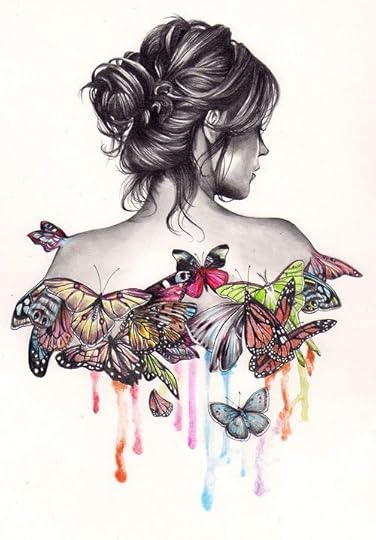
“Take good care of Rascal,” she said. “I’ll be back for him as soon as I can.”
He would. It was his last promise to her, a promise she’d let him make. To look after her cat until she returned. For her absolute final time in this world.
“I’ll find you, wherever you are, whatever you’re doing,” she’d vowed last night, in between his kisses. “If you decide to come with me, you have to be ready to leave when you see me.”

He knew he would be ready. Oh, maybe not financially, or in terms of saying goodbye to his family. But he would be ready to go with her. He had known that a long time ago.
Now he just had to wait; wait for her to come back; back for him.
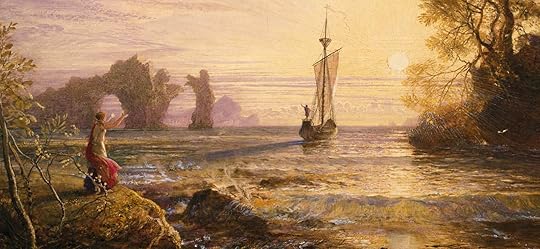


June 28, 2017
Update on Summer Complications, Anticipations, and Howls and Grumblings (Or, Why Do I Feel the Need to Do This?)
[image error]
Okay, for some reason (guessing at insecurity and a lack of ability to doubt my genius) I am having some issues with the following:
Writing, reading, and processing each well.
Coming up with original content for blog posts.
Not feeling like an utter failure at the indie author/social media thing for struggling with the above.
Also, Volume 2 is a bit ticked at me these days. My characters are beginning to wonder why I left them hanging (not being able to finish that chapter for the past week and a half). And the ideas for my additional compendiums are beginning to poke me in the ribs while I sleep.
So, I’ll be giving in to all of this finally, and be proactive about attacking it head on.
Translation: I expect not to be seen very much on social media for a bit. I’ve already scheduled several re-posts for the month of July. I will be around to keep up on comments, and the blogs/authors I subscribe to. But otherwise, I will be invoking a little “radio silence.”
[image error]
In the meantime, I’d greatly appreciate if you all keep visiting, and sharing your excitement for Volume 1, and have a little patience with my current creative process.
If all goes well, I’ll be back with new posts, and a new finished draft, before summer’s out.
[image error]


June 27, 2017
Writers’ Occupational Hazards
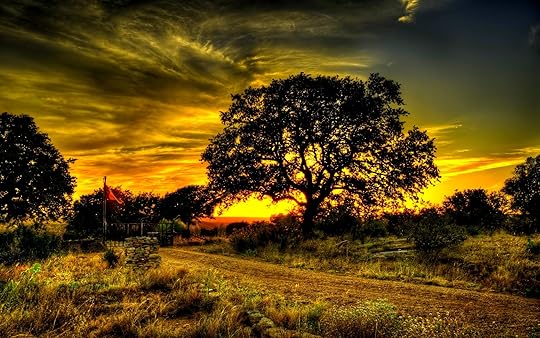
Being a writer is the best — we get to go to work in our pajamas, consume too much caffeine, put our playlist on repeat, and if we have a disagreement with someone, it’s usually ourselves.
But this sort of life is not all fun and games. Nor is it easy. There are lots of potential hazards that might befall your average neighborhood writer.
Be aware.
The dangers that we face from paper cuts, grammar nazis, and plot holes are very real.
If you write your drafts by hand (as I do, there is always the risk of suffering more paper cuts than the average human. Or of running out of ink in your pen, and needing to constantly replace it. All of this is a serious concern.
I believe that teaching the use of proper grammar is necessary — in schools, not in novels. What if incorrect grammar happens to be part of your setting, or characterizations? We writers truly don’t need self-proclaimed “grammar nazis” attacking us in our sleep — ahem, I mean, our work.
Every writer knows that one day, he or she will be revising/editing, and come across a gaping plot hole (big enough to drive a truck through), and be mortified. How did this happen?! How could this heinous sin have escaped our attention?! Also, how do we avoid falling into it and becoming part of the problem?!
We are often likely to be defeated by procrastination, block, and distractions.
Sometimes we know we should write (like if we have a deadline), but we just don’t want to. Either we’re having one of those days when we’d much rather lounge in front of the TV, or keep scrolling on Instagram and call it “research.” Self-motivation can be very difficult to conjure up.
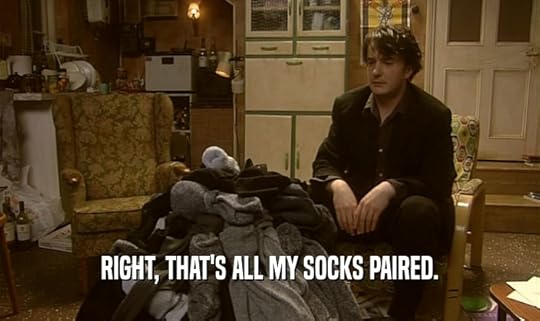
The dreaded writer’s block — it means that we have ideas of what we want to have happen in our story (for example, we know that Character A needs to purchase that falling-apart house on the edge of town), but we simply aren’t sure of the actual words to write so that we achieve that goal. (Does she need to meet a handsome real estate agent? Inherit the property from a batty old spinster aunt? Narrate paragraphs of, “Today I went to the hardware store to buy blah, blah, and blah for the new old house.”?)
How do we break the block? With a karate chop. Or a very big cup of tea? Maybe by flipping a coin?
There are also days when we will not feel the pull to our story. There are days when the desire to run around outside in the sunshine will override everything else. Or when we just need to go shopping for new tablecloths and laundry hampers. Or we would simply rather go to Argentina that week. It means that our word count goals will majorly suffer, even if our physical selves don’t.
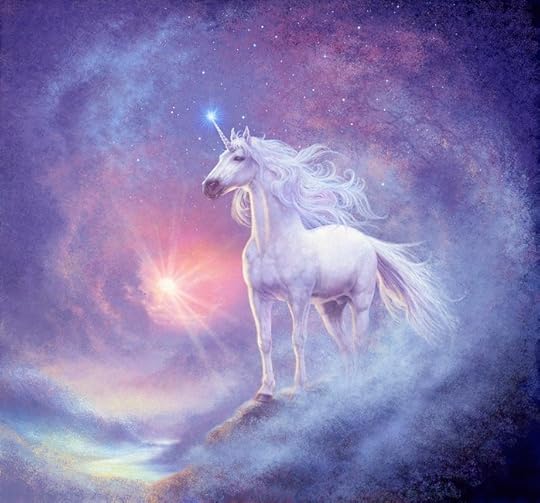
Don’t underestimate the threat posed by getting lost in research, real life interruptions, and forgetting your train of thought.
You are doing the right thing, researching your topic, or the history of your time period, or what breed of dog your narrator should own. Then, before you know it, it’s 2 days later, and you haven’t added a single word to your manuscript, but you do know just how to build a tandoori oven, prepare a horse for racing in the Kentucky Derby, crochet a matching hat and gloves set, just how many times Paper Fury has featured red books in her Instagram photos, and how to spell Aloysius without looking it up again.
The kids were quietly watching a movie, last you knew. But now they seem to be licking each other to death. Or the cat demands food, or a fresh litter box. A package has just been delivered to your door, and it’s not even for you. Your spouse announces they want to go out for the whole day, starting 5 minutes ago. None of this will help you write.
Let’s say you hardly slept last night (whoa, so me right now), and although at about 9 p.m. you had a fantastic idea for what your narrator needed to do/say next, at this moment it is out the window, gone frolicking with the butterflies and sparrows. It may take hours, days, weeks to return to you. (Unfortunately, sending out a search party may further distract you, and not successfully hunt down your original plan.)
So, the next time you, dear reader, finish a book that you love the petunias out of, please realize how difficult it was to produce. Pity and love us writers. Mail us care packages.



June 26, 2017
Getting It Right: Your Characters With Developmental Disorders: Part 2
[image error]
Or: The Danger of Misrepresentation.
White Fang is into The Big Bang Theory right now. For those of you who aren’t familiar with the sitcom, it’s an American program focusing on the lives of 4 geniuses who are brilliant at their jobs, but not so much at love and interpersonal relationships. There are many ways in which this is a program that really appeals to geeks (tons of references to science and science fiction), as well as autists, because while we don’t get some of the references, we definitely get the moments of social and emotional awkwardness.
One of the characters in particular, Sheldon, appears to in fact have Asperger’s Syndrome; but the show never addresses this directly, and there are certain indicators that would really “seal the deal” for those of us with ASD — like him stimming or having certain intense phobias — that aren’t displayed or mentioned in the script. And the producers/directors/writers of the show have stated that, while they see how Sheldon’s traits would encourage viewers to consider him as Asperger’s, that’s not their intention for this character.
So, while I don’t necessarily have a problem with Sheldon existing, I do take slight issue with the way he’s 90% Asperger’s, but isn’t “intended” to be.
Recently, there have been more TV shows and novels trying to portray people with autism in a favorable light, to help build awareness and understanding of the disorders. (That’s right, it’s a disorder or a syndrome — not a disease.) And while I think this is something that we certainly need in our society, it concerns me because I believe most of these people aren’t going about it in the right way.
[image error]
Let’s talk about the “diversity” platform for a minute here. Is it just me, or does the “tolerance” movement seem to be championed by wealthy, NeuroTypical, physically healthy, college-educated people? Who can’t really relate to what it’s like to be a stay-at-home ASD parent on one income, with an autistic teenager and a special needs toddler? And yet supposedly they know just what will make White Fang’s education more effective, Muffin’s services more productive, make me feel the world is truly growing in understanding my children?
(Hashtag, not buying it.)
Muffin is not ASD, but he is special needs because of developmental disorders — just not the kind people usually think of with that term. Muffin was born 4 weeks premature, with torticollis, jaundice, acid reflux, and low birth weight. It has been a hard road for our little guy. The torticollis means he has asymmetry in the muscles of his neck, which led to delays in crawling, walking, jumping, and kicking. The acid reflux and his low birth weight meant he had to be on special formula for the first year of his life. We’ve been in and out of doctors’ offices, physical therapy clinics, and specialist appointments since the day he came home from the hospital. (Which happened when he was 9 days old, after being in the NICU from about the second he was born.)
We have managed all of this with one car, limited health insurance, an unusual work schedule (my husband’s), and White Fang learning to babysit. No nannies or in-home assistance, and certainly not on a budget that most politicians would grasp.
Anyway, my point is this — so why/how would I see myself in a film or a book with doctors who get it perfect the first time, a household income of 50 grand, reliable transportation, and kids that are always compliant with whatever treatments are recommended for them?
And how/why would I see myself in a portrayal of girls/women who get diagnosed overnight by some amazing specialist, and suddenly everyone in their lives gets their “quirks”, and lets them stim without saying anything, and be alone for hours on end and… Yeah, no. It doesn’t go like that.
[image error]
As much as I wish the entire NT world would become truly tolerant of ASD, this is not realistic. So, here’s what we need more of in fiction that’s hoping to bridge the gap:
Characters who are diagnosed but still have challenges. Being ASD in a world that’s threatening to your very being (nature can be overstimulating, folks) means we are not magically “made all better” by taking anti-anxiety meds and attending counseling. (Without creating any spoilers for my own work, a lot of Volume 2 will focus on accurate autism representation.)
An expanding depiction of developmental disorders. For example, Muffin’s torticollis. As well as speech disorders, dyslexia, phobias, social anxiety, ADHD, and sensory perception difficulties. (We seriously need fictional parents trying to raise children who won’t eat anything orange or can’t wear clothes made of polyester.)
Fiction that treats all of this as someone’s normal, and not something to be feared or eliminated. Getting rid of the negative parts of my or White Fang’s autism might also make our positive (and unique) traits vanish. It’s about finding a healthy balance, not a “cure.”
Fiction that is honest about how challenging all this can be for parents. But also making it clear that so many families would not trade their experience for a “regular” life.
[image error]
So, we also need more people in the know writing their stories. Is it your relative, friend, neighbor, co-worker in this situation? Ask them if they’d mind being interviewed for a magazine article, blog post, short story, or future novel. (A lot of them will say yes.)
Is it you (trying to live on Mars when you’re actually from Pluto)? Tell your story. Don’t be afraid. Blog, or vlog. Allow people to interview you. (You can do it. Believe in yourself.)
And if you’re completely NT, and don’t happen to know anyone who’s ASD (or developmentally challenged), then please get it out of your head that you know what’s best for us.
And if you already know that, thank you. Feel free to join our cause. We’d be happy to have you.
Just bring lots of patience, and cake, blankets, and books, and don’t take it personally if we can’t look you in the eye.
[image error]


Travel Bucket List

G’day, all! (Sorry, I just had to.) Today I’m discussing something a little out of the ordinary (but I’ll soon tie it in to one of my favorite subjects, just wait and see). I don’t necessarily have a bucket list — in fact, I’m a bit opposed to the idea in general (not entirely, but it falls under my view of “stop categorizing everything, people, just go out and do things”). But there are certain places I would like to visit before my time on Earth is up, and here they are — in no particular order, by the way (except in which they came to my brain while searching Google images).
AUSTRALIA

Ever since I was small, I have had a fascination with this country (honestly, no idea where it came from). It’s interesting, because a lot of this continent is desert, which scares me, as it’s filled with snakes and big bugs and bunyips (and do I actually know what a bunyip is — of course not — but that doesn’t stop my potential to be afraid of it). But there are some truly wonderful things about the beaches and forests and mountains (don’t forget the wombats!) of Australia as well, and that overrides my scaredy-cat tendencies. Maybe I’d even be lucky enough to spot a Tasmanian tiger (it turns out they may not be extinct, after all!).
NEW ZEALAND

Why do I want to go to New Zealand? It is Middle Earth. Therefore, I need no other reason.
And even if I can’t actually find any hobbits or Ents near Wellington or Auckland, I don’t think I care. It is an absolutely beautiful island nation, and I truly can’t believe I didn’t know this until The Fellowship of the Ring was released.
(See, I told you I’d tie fantasy fiction into this post somehow.)
GREAT BRITAIN

“But, wait,” those of you who have been around here a while might be saying, “didn’t you live in England?” Why, yes, I did, for 4 years. And this is precisely why I must go back as soon as possible, to explore all the places I didn’t get a chance to before — the Scottish Highlands, the beaches of Cornwall, the woods that were home to Robin Hood (you shush, yes, they were).
And also Wales, because that’s where they film parts of Doctor Who and Sherlock. (Yes, these are completely valid reasons to add more destinations to my itinerary.)
ICELAND
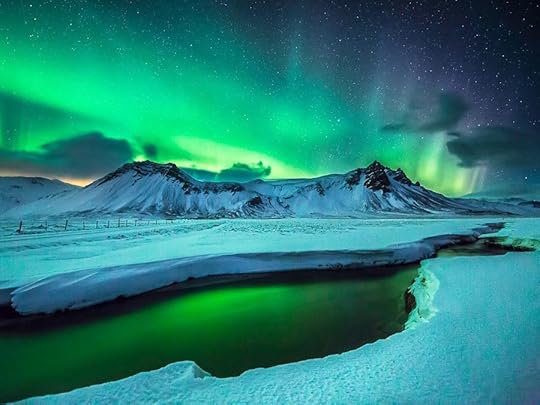
Iceland is just amazing. The volcanoes and mountains, the incredible and dangerous natural beauty. I’m not a huge fan of the intense snow and cold, though, so this would be one on the summer travel schedule.
PACIFIC NORTHWEST
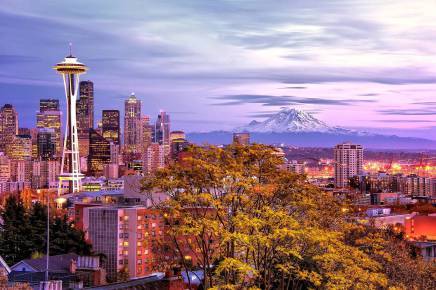
For years and years, I’ve wanted to visit Seattle and Portland and the surrounding areas. Not that I’m much for big cities, but I’m in such awe of the gorgeous landscapes around these ones. While I don’t hike, and may not ever summon the courage to reach the top of the Space Needle, I am a big fan of seafood, so I’d probably manage to cope with the crowds at Pike Place Fish Market. (But no Bigfoot hunting for me, please.)
[image error]


June 25, 2017
The Misanthrope
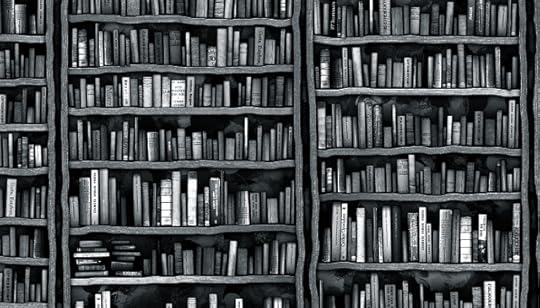
In philosophy and literature, a “misanthrope” is described as a person who is very cynical of humankind and society, and tends to be a loner. He or she is often considered rude and doesn’t receive many invitations to parties and the like. (Not that they’d actually show up to the parties, anyway…)
On stage and in written fiction, misanthropes are often portrayed as an Ebenezer Scrooge type (or think Edmund Blackadder in the BBC series, for fellow Anglophiles). They’re frequently the punchline, the joke being that there must be something inherently wrong with them for them to develop such pessimistic views.
Well, guess what? Some of us identify more with the Blackadders of the world than the Lizzie Bennets or Anne Shirleys.
That’s me.
I’m not exactly a misanthrope. I still have hope for humanity. Personally, though, I prefer not to be around too many of them at once. I love my family — just sometimes I wish they’d be more quiet (okay, a lot of the time). My favorite way to pass the day involves more books than other breathing humans in the vicinity.
Does this mean I actually hate my own species? No! I love the writers, musicians, artists, dancers, librarians, and cat owners. Am I picky about who I choose to be around? Yes. Is there anything wrong with that? I really don’t think so.
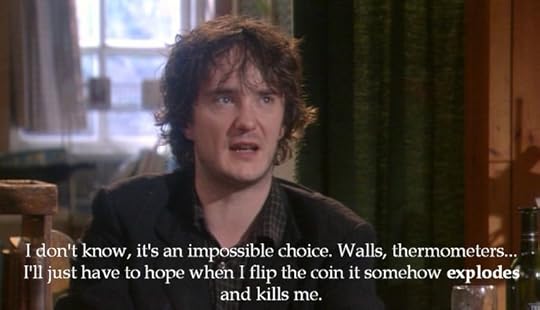
When I look at photographs of amazing architecture, fireworks, Christmas lights (or happen to see any of this in person), I am so awed at what beauty mankind can create. Humans have invented some of my favorite things — tea, air conditioning, fluffy slippers, to-your-door-delivery of bookmail, jewelry, wine.
Which is why it also boggles my mind that they’ve come up with so many things I just can’t understand the point of — sports, climbing mountains for fun, shark diving, bungee jumping, reality TV, filing your own income taxes.
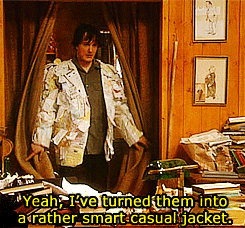
Part of the reason I love reading is because I can often find a book where the characters get what they deserve (good or bad), behave according to a minority point of view (that I relate to much more than a majority perspective), and are actually nice to other people who are “different” or “unpopular.”
My real problem is not with humanity itself. It’s with the ones who are in charge of deciding what’s “in” and what’s “out” — and the ones who strive to follow this to “fit in” at any cost.
There are some very good reasons that I’m a little cynical, a little pessimistic, and a little concerned about civilization as a whole.
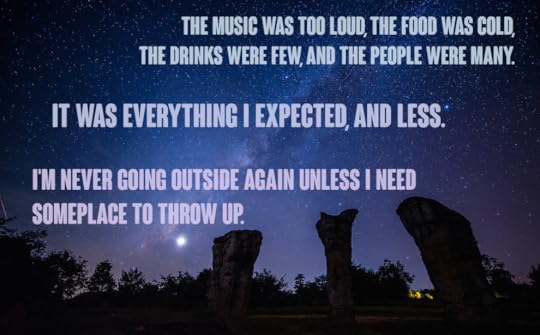
It’s why I’d usually rather spend much of my life around fictional people and my cat.
Who’s with me on this?
No offense meant to real (nice) humans.
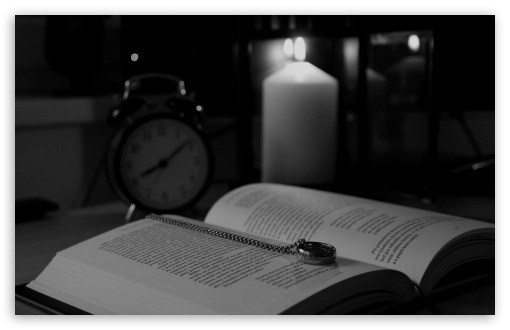


June 24, 2017
Don’t Call It History If It’s Not
[image error]
So, I’m having a whole lot of issue with recent depictions of “historical” dramas. There are major differences between presenting well-known or widely-believed circumstances, and making up personal interactions and motivations that have no basis in the historical record with people who actually existed.
When we’re discussing historical fiction, putting characters who are authors’ or screenwriters’ inventions into real time periods, I don’t have any problem at all with the situation the people find themselves in, or the choices they make, as long as it makes sense for the setting (the period’s culture/religion/politics). But when authors take intense liberties with very biased rumors and gossip that has never been proven by historians, and then dare to call their writing “historically accurate” — well, I make this face:
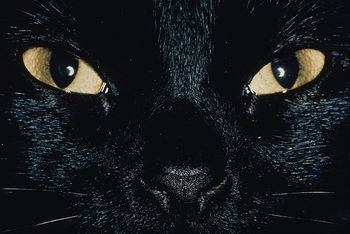
Take, for big example, the recent slander of the Tudor period by programs such as Reign and The White Queen, and pretty much anything written by Phillipa Gregory regarding that time. I’m no scholar on the 15th-16th centuries, but I know how to do my research; I know how to check the references and find out where each biographer got their information from, and how reliable it was. And I also know to consider both sides of the argument. There’s a saying that “history is written by the winners,” and unfortunately, that has too often been true; but, as part of our advance as a civilization, we truly need to do better than that.
After catching season 2 of The Tudors (back when we had extended cable), I got curious as to how accurate it was, and started looking into that. After several months (not all at once, over a long stretch) of reading up and watching other movies and documentaries, I came to this conclusion: The Tudors did a pretty good job of portraying both sides of the coin (in terms of the Catholic vs. Protestant stuff), and both the merits and the flaws of such pivotal figures in British history as Henry VIII and Anne Boleyn.

Cate Blanchett and Helen Mirren have both received critical praise for pretty accurate portrayals of Elizabeth I (not fully, but certainly not horrifically inaccurate). Compare to Reign, which suggested Elizabeth was constantly losing her head over a man, and hardly qualified to rule, and whenever her seat on the throne was challenged, she apparently threw a fit like a 14-year-old girl — when all the historical records and personal testimonies regarding the Queen’s character state quite differently. And did anybody else see that truly terrible film, Anonymous, suggesting the Virgin Queen was actually guilty of repeatedly producing illegitimate children and even incest?!
But what really drove me crazy about Reign was the absolutely ridiculous depictions of Mary, Queen of Scots, as nothing but a victim (she was a very scheming woman who tried by force to take not one but two thrones that she barely had legal claim to). Nor was that enough for the writers of Reign — they also found it necessary to depict a secret homosexual/crossdressing lifestyle at the royal courts (which we know would not have happened in the 16th century), just to insert a modern social agenda; as well as painting people (like Lord Bothwell of Scotland, who was, by all accounts, a madman) who were definitely the bad guys as heroes and champions of chivalry.
And now there’s the miniseries of The White Queen, which insinuates that the entire dynasty of Edward IV of York was put into place by the practice of witchcraft. Well, what more can we expect from a program based on novels (novels, people, meaning it’s fiction) by Phillipa Gregory? Witchcraft was such a serious accusation in those days that no one’s reputation (especially a woman’s) would have fully recovered from it; so, why then, if most of the English court of the time believed Elizabeth Woodville to be a witch, was she recorded one of the most beloved queens of the age? Her daughter became, in fact, the mother of King Henry VIII — so it turns out Elizabeth I was named after her grandmother.
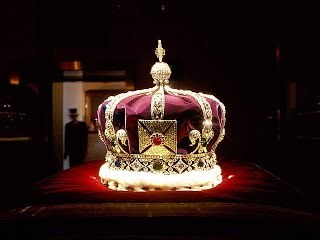
Making programs and writing books like this aren’t just trying to “present a different view” of history. They’re trying to rewrite history itself.
In art, we get to create things with our own personal bent, and display opinions or ideals as we choose. It’s called creative license, and even if I don’t agree with someone else’s fictional invention, I stand by their right (I feel) to make it.
But when you’re dealing with history, there are some things it’s just not okay to fabricate. Whether you like the outcome of the actual event or not. For example, do I think Anne Boleyn got a raw deal? Yes, I do. However, if I were writing a historical fiction piece about her, it would still end with her execution. Because it’s totally all right for me to decide that she wore a red and gold gown to a party at Court last Tuesday — but not at all to suddenly declare she was sent to a convent after her supposed betrayal of the King and lived the rest of her days in saintly solitude, when that’s simply not what happened.
It’s about preserving the facts — the good, the bad, and yes, even the ugly — for future generations. How will we know where we’re going if we don’t know where we’ve come from?



June 21, 2017
Life Hacks for Bookdragons

So, you are a bookdragon. You take pride in this (as well you should). But after you embark on this life, you realize there are some things that could be problematic — for example, running out of shelf space, losing your bookmarks, or not having the budget to acquire all of the books. Well, today we are here to save your precious little overwraught selves with some tips to quell the quandaries.
How to not run out of shelf space. Having a designated bookcase (a pre-built, independent piece of furniture) is extremely helpful. But, if you collect several new books a year, they’ll fill up pretty quickly. So it may work better for you to have shelves that can be placed on walls (think with nuts and bolts — do consider your safety), possibly expanding upwards or outwards as needed.
Also, think about getting rid of books every now and again to help make space for new acquisitions. I know, I know, to some ears that will be heresy. But honestly, sometimes we just know we’re not going to read a book again, and library sales and charity shops are more than happy to take on well-treated secondhand books.
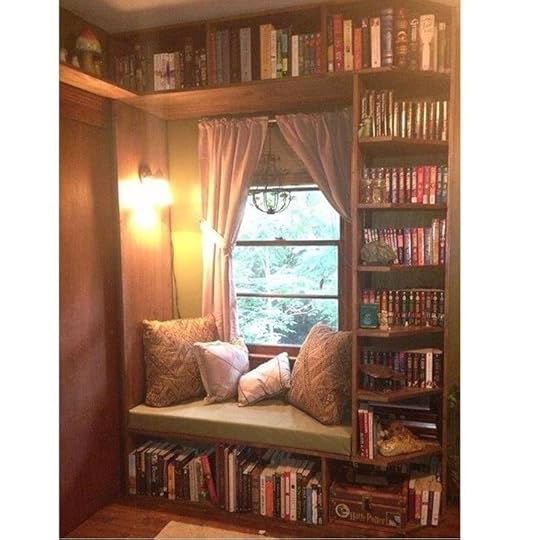
Keep things organized. If you tend to have a long TBR or maybe receive a lot of ARCs, take notes when deliveries arrive. Try having a journal detailing the date of when new books came to your home, or of when you need to post the review by. Place sticky notes on or near your bookshelves or calendar, so that you don’t accidentally start reading this August release before finishing that July ARC.
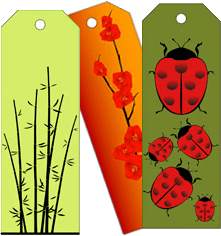
Do use bookmarks. Some readers don’t, and it’s really a personal preference, but dog-earing pages is just, well, bad. Infrequent readers tend to commit the even more heinous sin of leaving the book out, facedown on the page where they stopped. In the interest of keeping the binding intact for longer, please do not do this. (Some bookdragons will come after you, and they will not be happy.)
Bookmarks are easy to find for sale in bookstores and on websites. Libraries also often give them away. And you can honestly use old grocery lists or receipts as well (my husband uses index cards). Or you can make your own, if you’re craft-inclined.
If your issue is losing bookmarks, sticky notes will help with that. Or bookmarks with clips that attach them directly to the page.

Don’t underestimate the power of the public library. Money needs to be spent on a million things other than new books. So, if you just don’t have a spare thousand dollars for all those new releases (and who does?), be patient, and within a few months, many of them will be available through your local library. (Don’t forget about inter-library loans as well. If where you live the library is simply the size of a postage stamp, requesting books from bigger libraries nearby is usually pretty easy and free.)
Take advantage of secondhand bookstores, online sales, and entering giveaways. Self-explanatory, really, when it comes to saving money.
Don’t request ARCs. If your problem is too many books waiting to be read, then reduce your future TBR by discontinuing your requests for advance copies of new releases. Many of us are beginning to feel that the cons of ARCs outweigh the benefits.
Limit what’s on your Kindle. If most of your TBR is physical (rather than digital) it’ll be much easier to keep track of, and trimmed to a healthy size.
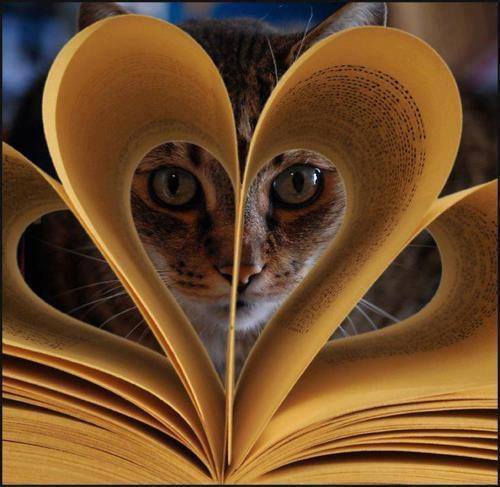


June 20, 2017
Discussion: When Do Series Need To Stop?
[image error]
So, after having stated that I’m not doing any top 10 Tuesdays — because I’m truly not, I really don’t have the time right now — I’m still seeing other people’s pop up on their blogs (after all, it is — shocker, in case you weren’t aware — Tuesday).
Anyway, the theme for this week is “Series I mean to read but haven’t started yet.” As I checked out some of these posts, I saw a lot of series that are still anticipating further sequels — and in some instances, they’re already at book 4, 5, or 6. So, I thought it might be a good time to discuss this issue — when is it too much, and time for the author to wrap it up and move onto something else?
As the writer of a series myself, I see many benefits to determining ahead of time that I’m going to create a quartet. In my case, it will be 4 books following the major plot thread/main characters in this setting. (And I think “quartet” has a nice sophisticated sound to it.) I took the whole story and broke it into 4 separate parts, and determined a length limit on each individual novel (between 190 and 200 pages), so that someday they’ll all fit nicely into a limited edition box set, and each installment is not too much at once for the reader.
(Okay, maybe I should’ve switched the listing order of those priorities…)
But it’s the truth for many readers — when a series carries on too long (literally, in terms of years of publishing, and/or the length of each new book), we’re more likely to decide not to finish the series. We just get tired of waiting 2 years for the next sequel, or shelling out money for another 650 pages of continually deteriorating plot and character motivations.
And this is the other major problem — when a publisher insists that a series keep going, even when the story feels that it could have reached a natural conclusion one, two, even three books back, the writing begins to feel stale, trite, unnecessary.
[image error]
As a writer, this pains me to witness.
It’s the same as when TV shows keep producing episodes, even though the natural flow of the story died off 3, 4, 5 seasons ago. Or when a movie has just too many sequels. And we the readers/viewers, begin to wonder what the point is anymore, and it makes us sad, and even starts to eat away at the enjoyment we used to have for the whole thing.
Just me? No?
There is a huge benefit to declaring when there will be no more books. JK Rowling could have spent her entire career writing nothing other than Harry Potter (based on the money factor alone). But she established that after book 7, she would be done. Maybe a spinoff here or there (like the screenplay for Fantastic Beasts), but otherwise, no. And she has been apparently happy writing adult murder mysteries since then. So, good for her. I loved Harry Potter, and had a bit of a bookdragon hangover when I finished reading Deathly Hallows, but I also knew that Harry’s story had come to a conclusion, and I did respect the author’s choices, so I had to suck it up.
This may be an unpopular opinion, but I’m beginning to think that Americans in general don’t know when to stop.
[image error]
Part of the reason I gave up reading certain genres (I’m staring directly at mysteries and romance here) is the tendency for publishers to encourage authors to write for absolutely as long as the series makes money. Regardless of whether the characters still have life in them. It becomes too tedious to wade through.
I honestly don’t mind a favorite series coming to an end if it makes sense to the plot and character arcs. I’m mature about it. And quite frankly, the rest of us should be, too.
The other thing I’m beyond done with is living writers creating new spinoffs for characters written by authors who have been dead for decades. Seriously, folks, let Sherlock Holmes rest in peace, already! What in the seven hells was the point of adding zombies and sea monsters to the works of Jane Austen?! And really, Hollywood, you can’t come up with anything better than yet another remake?
This trend to “just keep going” makes me wonder if we also have an irrational fear of things ending.
Even one of my major favorites, Warriors, which has released new publications continually for the last several years, seems to be reaching its end. But this incredible world-building has certainly been thoroughly explored, and I feel that things would start to get too repetitive if the authors forced out any more 6-book arcs. So I don’t have an issue with it.
[image error]
As I see the advertisements for upcoming releases, I notice just how many of them belong to an established series. And I’m late to the party, and the idea of trying to catch up now is honestly draining.
So for the rest of this year, I think I’ll be hunting out more standalones, more indie authors, more set trilogies and duologies.
I’m sticking to my 4-volume completion of my original series, and then there will be spinoffs — but that’s because there’s a ton more in this world that I want to explore, using different characters, different settings, different time periods.
And that’s the whole crux of the biscuit — the entertainment market keeps pushing the same old, same old at the audience, who is clamoring for something different.
Just a few thoughts.
[image error]


Daley Downing's Blog
- Daley Downing's profile
- 36 followers



